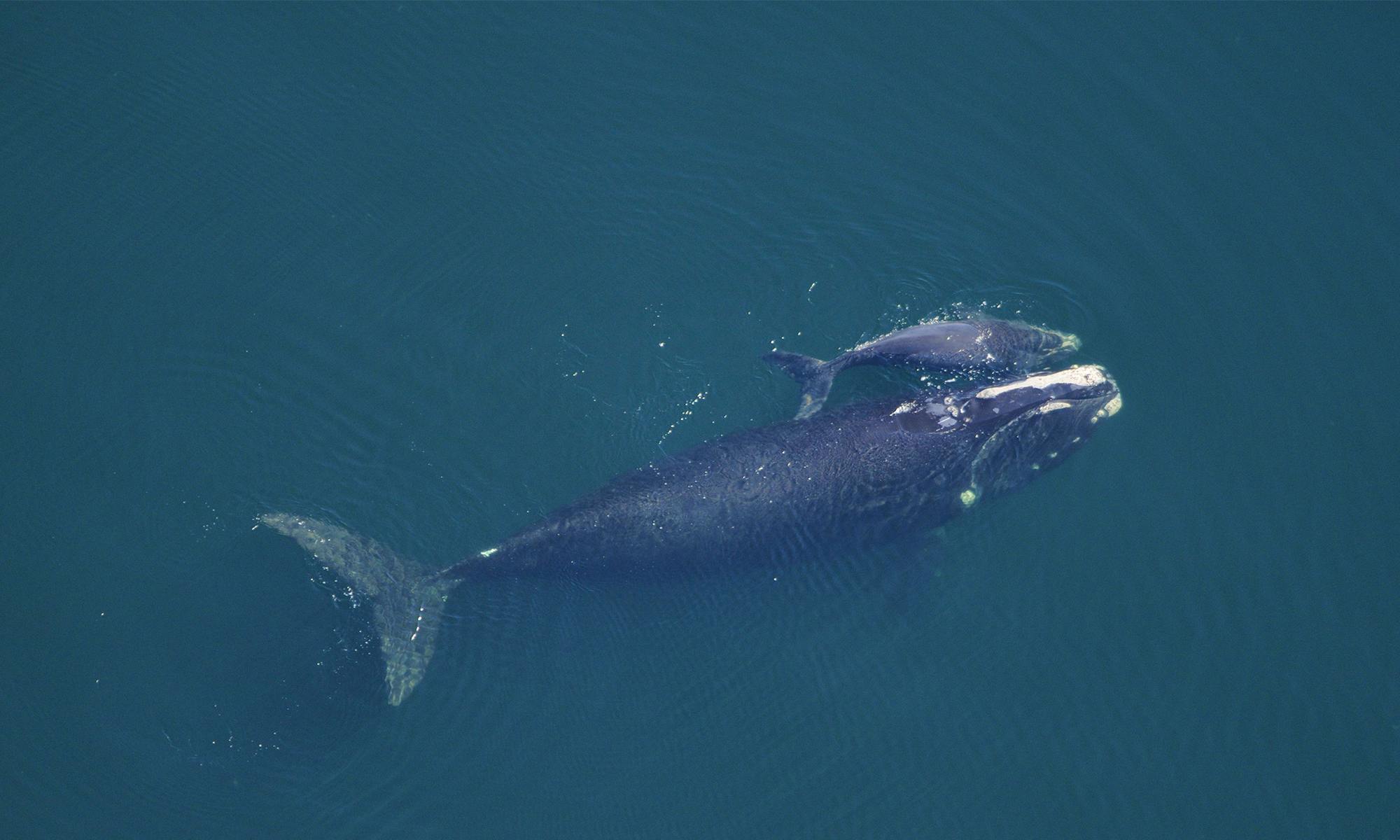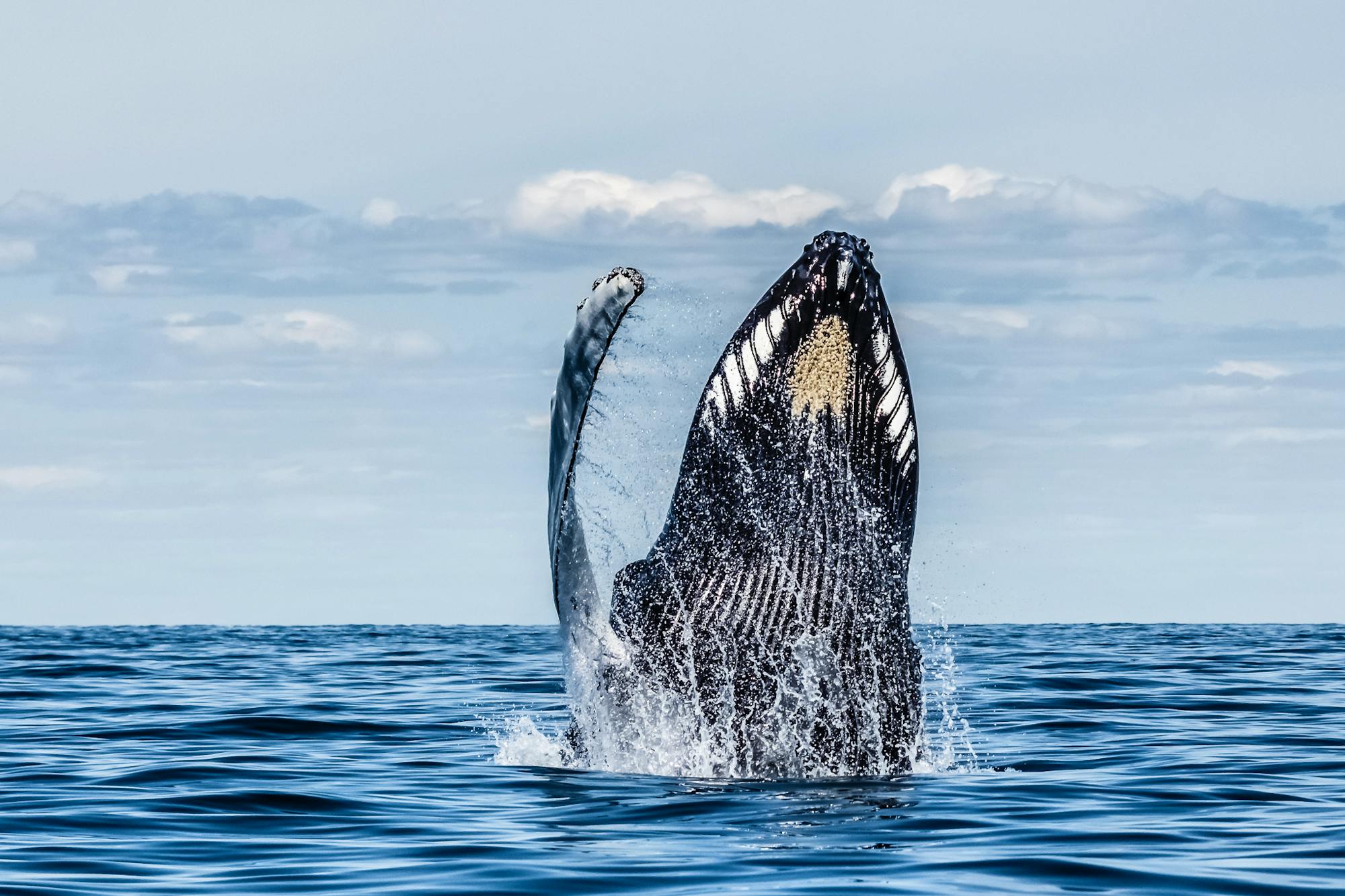Overharvesting, fisheries bycatch, fishing gear entanglements, and ship strikes are rapidly depleting marine wildlife, while offshore oil and gas exploration and extraction, marine debris, ocean dumping, land-based waste and pollution, the destruction of coastal wetlands, and climate change are destroying the marine ecosystems they – and we – depend on for survival.
But while the situation looks increasingly grim for fish stocks, whales and dolphins, sharks, sea turtles, seabirds, and coral reefs, this incredible diversity of marine life, the oceans, and the climate will receive some much-needed support if the Ocean-Based Climate Solutions Act of 2020 is enacted into law. Introduced in October 2020 by Representative Raúl Grijalva, House Natural Resources Committee Chair, the act focuses on mitigating the climate crisis by restoring ocean health and the resiliency of marine ecosystems, promoting the development of clean, renewable offshore energy and protecting marine wildlife.


Ocean habitats, as one of the most important carbon sinks and regulators of atmospheric oxygen levels, are critical to fighting climate change. Oceans absorb carbon dioxide emissions at a rate four times faster than forests, but we are overworking this resource to the point where it cannot function. Rising levels of carbon dioxide are acidifying and warming the oceans and pushing key species in marine food webs closer to the brink of extinction. In addition, sediment and nutrient runoff create toxic algal blooms that suffocate or poison marine wildlife, while dams and other infrastructure block important migration channels. Coastal wetlands and waves of seagrass are disappearing rapidly while coral reefs are bleaching and dying.
Ocean wildlife, particularly large whales, provide enormously beneficial ecosystem services and protecting them must be part of the climate solution. Large whales are ecosystem engineers; diving to depth to feed and surfacing to eliminate, they cycle nutrients and fertilize phytoplankton near the surface. Given that ocean-based phytoplankton capture 40% of all carbon dioxide produced and are responsible for at least 50% of all oxygen on earth, you can thank a whale for every other breath you take! In addition, whales are surprisingly incredible carbon stores, with great whales absorbing an average of 33 tons of carbon dioxide during their lifetimes. To put this in perspective, a tree only absorbs an average of 48 pounds of carbon dioxide. These whales are so important to the health of our planet, that in addition to adding to ecological grief, their extinction would be environmentally catastrophic.


The Ocean-Based Climate Solutions Act’s innovative proposed solutions are vital to reversing the damage to our oceans and to protecting our own livelihoods – and lives -- on our blue planet. A commitment to establish a national policy to protect 30% of the ocean by the year 2030, increased prohibitions on deep-sea fishing gear, a Blue Carbon initiative recognizing the carbon cycling benefits of wetland and salt marsh ecosystems, and expanded funding and protections for habitats are all baked into this forward-thinking bill.
This legislation recognizes that ocean health is tied to the survival and wellbeing of coastal communities and fisheries, and as a result, it offers almost $3 billion of support toward research supporting best practices for coastal resiliency. This includes creating jobs for those disadvantaged by the COVID-19 crisis to participate in local restoration projects. Section 601 of the act focuses on empowering Indigenous tribal management of coastal zones to conserve resources under their jurisdiction. Humans along the coasts are inextricably tied to the oceans, which is why the bill allocates the funding and tools needed to support the transition of overharvested fisheries and industries based on fossil fuel extraction to more sustainable models. The act prohibits new oil leasing in the outer continental shelf and requires carbon dioxide emission reports from shipping companies.
While the Ocean-Based Climate Solutions Act enables coastal stakeholders to improve their efforts towards mitigating climate change, it simultaneously strengthens marine mammal protections. The act will amend the Marine Mammal Protection Act to require climate impact management plans for marine mammals highly threatened by climate change. It will require the designation of areas of importance to marine mammals in which vessels of 49’ or longer must slow down to 10 nautical miles per hour or less to reduce the risk of fatal vessel strikes. Finally, it will direct the federal government to maintain and expand a network of systems to measure and observe underwater sound for the purpose of managing and protecting marine life. Underwater noise pollution harms a range of marine species, including animals such as dolphins and whales that rely on sound to communicate, detect prey, and navigate. The stress of trying to communicate in an increasingly noisy ocean places physiological strain on their bodies and interrupts key behaviors such as breeding and feeding.
The importance of this bill is not only that it will strengthen protections for marine habitats and vulnerable marine wildlife but also what it signifies for the future of our environment. The dedication, optimism and solutions-based thinking the legislation embodies is an example of an innovative plan for the future – one of many being developed globally. The stakes are incredibly high as we continue to work against the clock to reverse the effects of climate change but ultimately it can be done. Now is no time for us to abandon hope. We can yet save our beloved ocean wildlife and ecosystem. And there’s still time to protect our coasts and coral reefs. We just need to innovate and fight for meaningful change. The Ocean-Based Climate Solutions Act of 2020 is a great leap forward and deserves our support.











